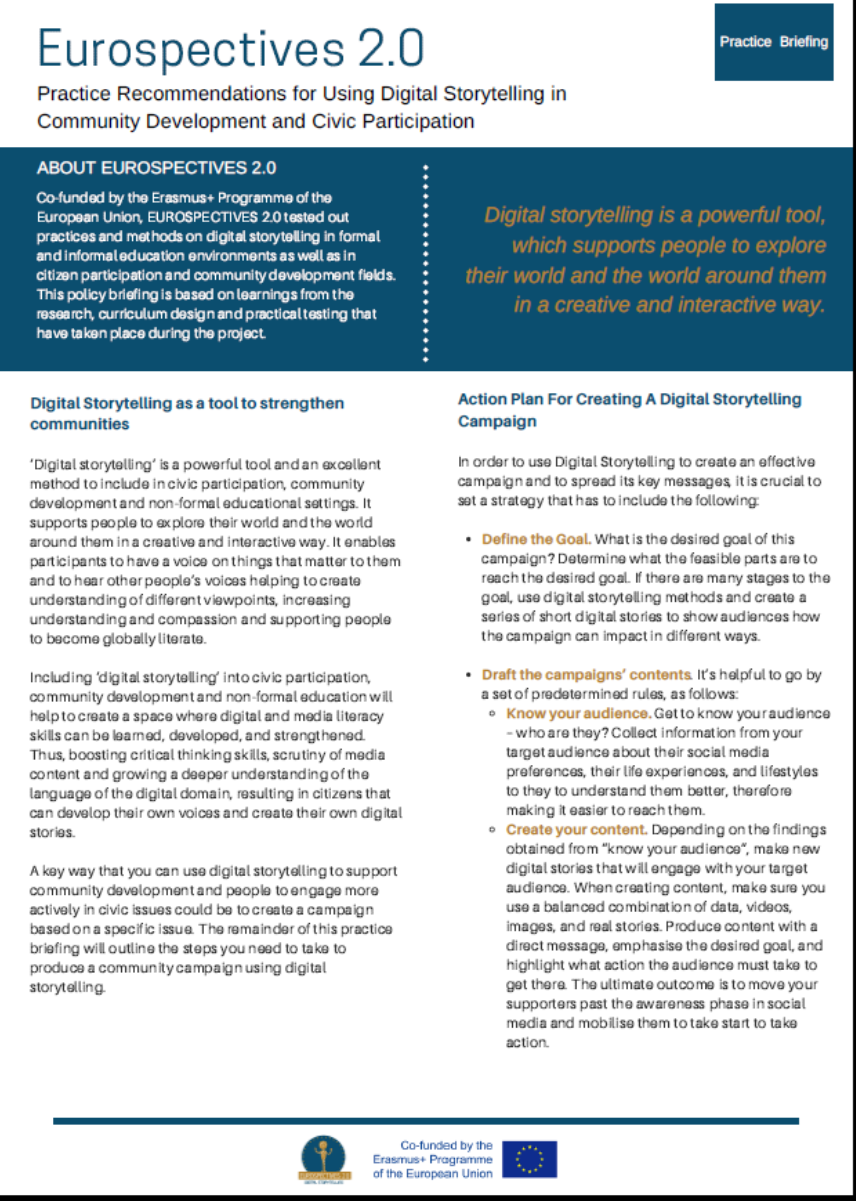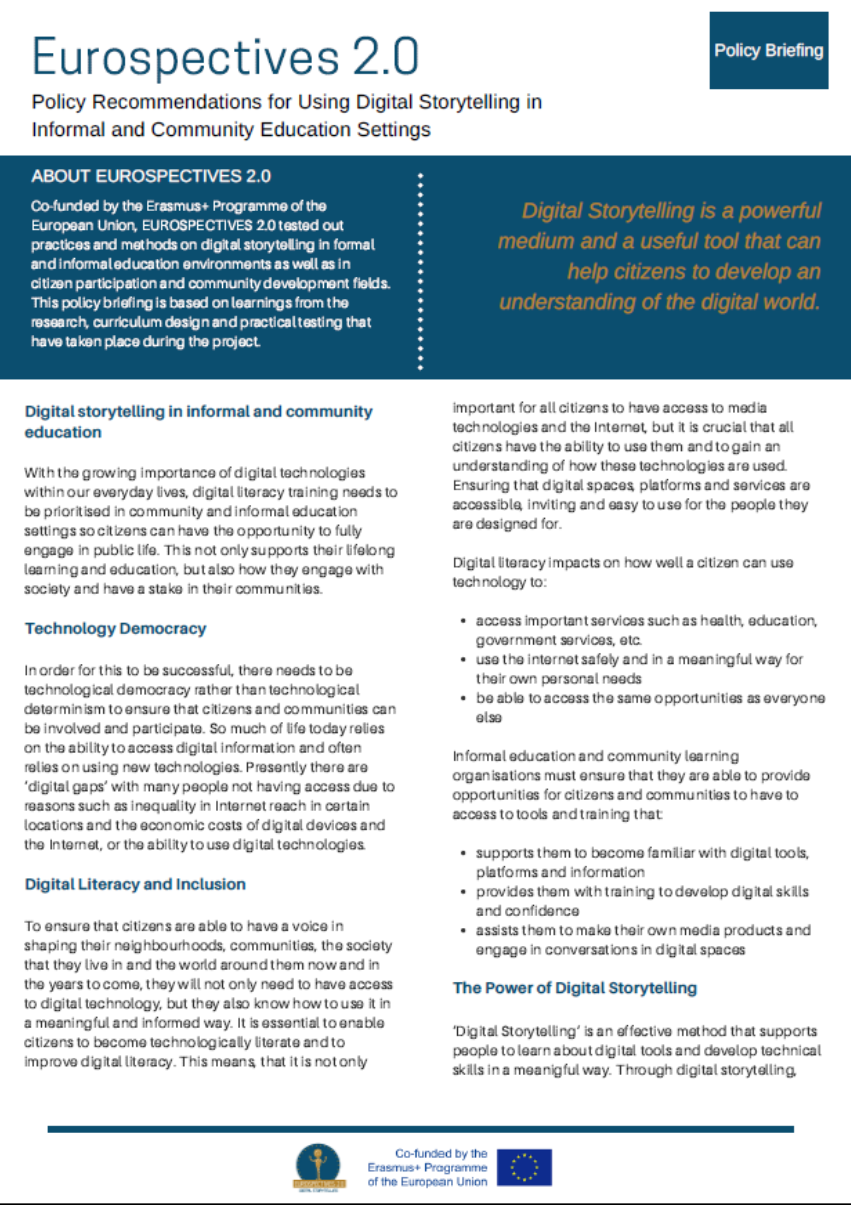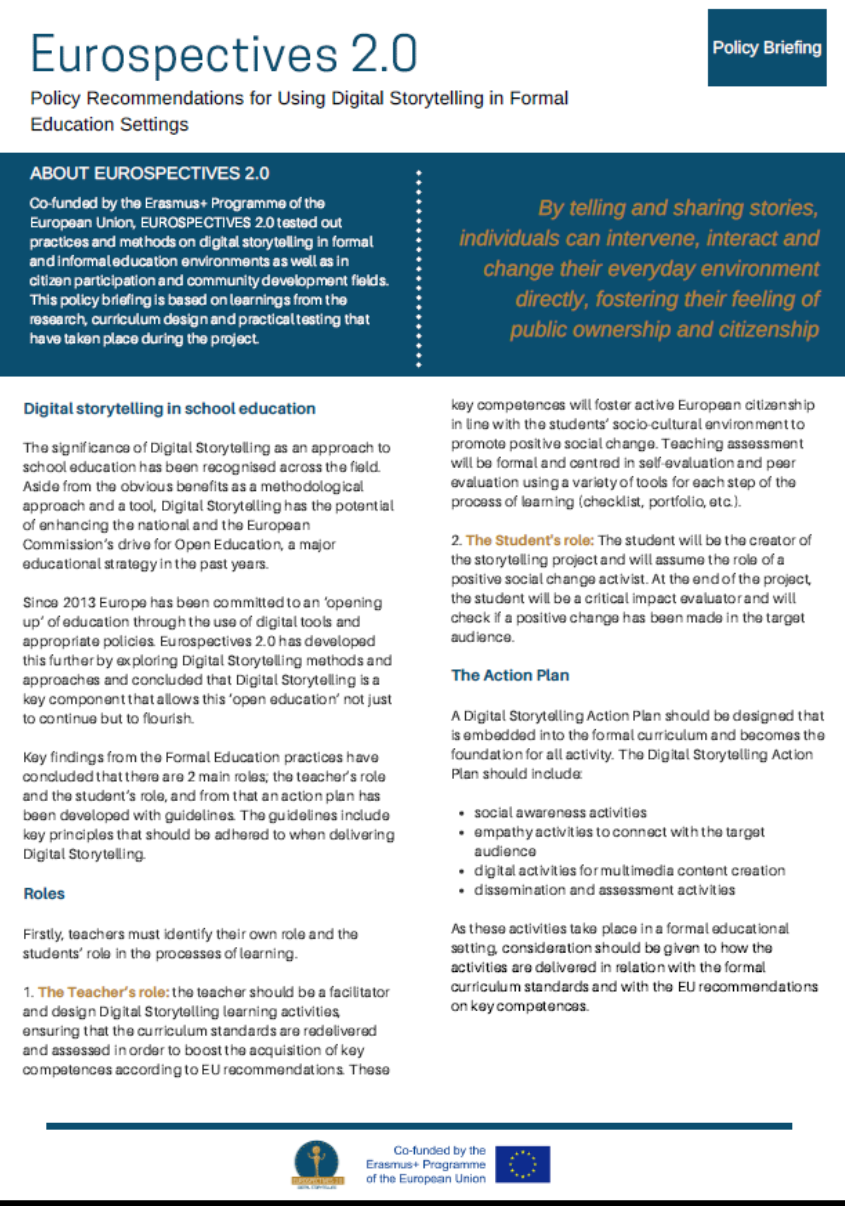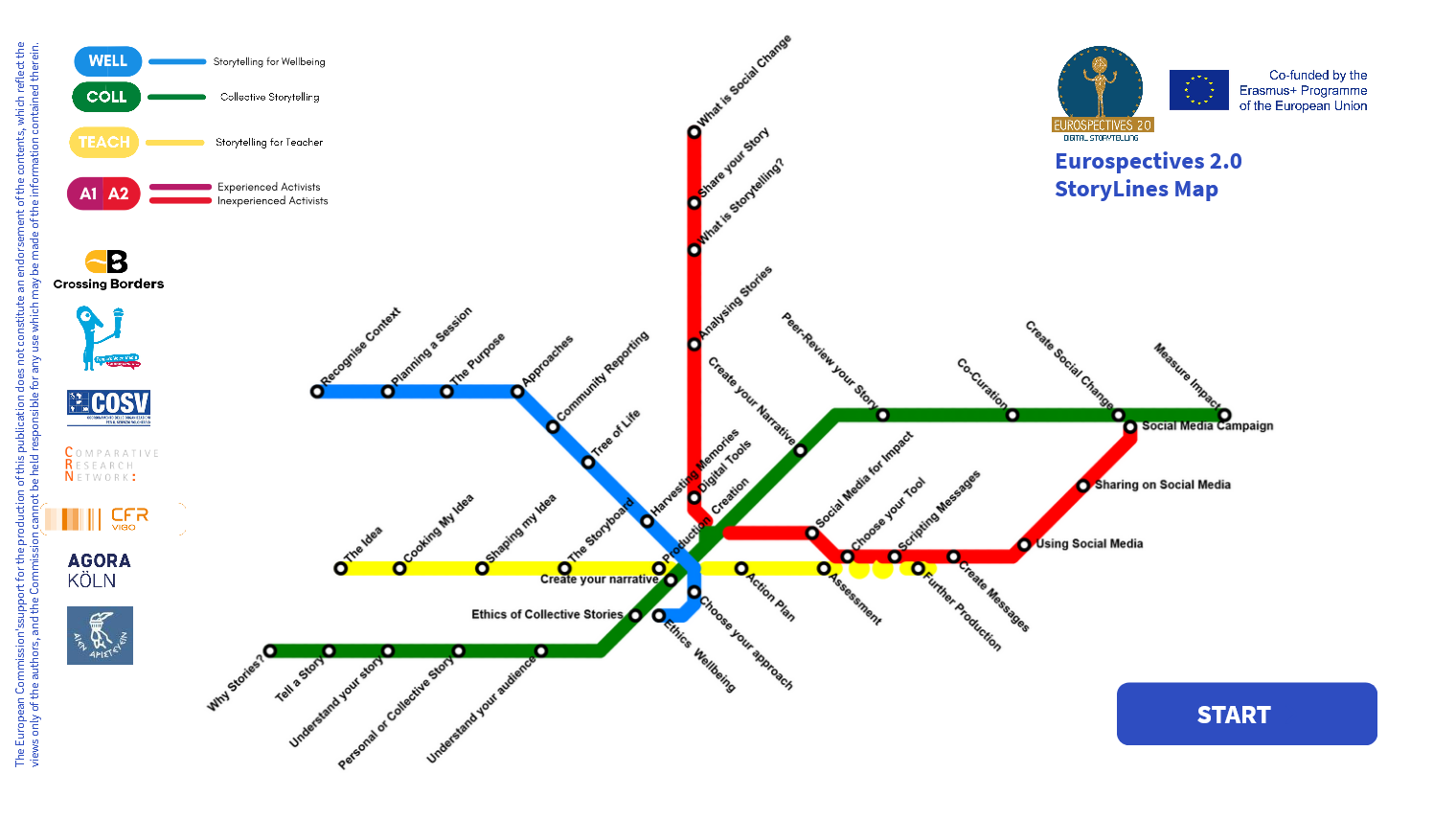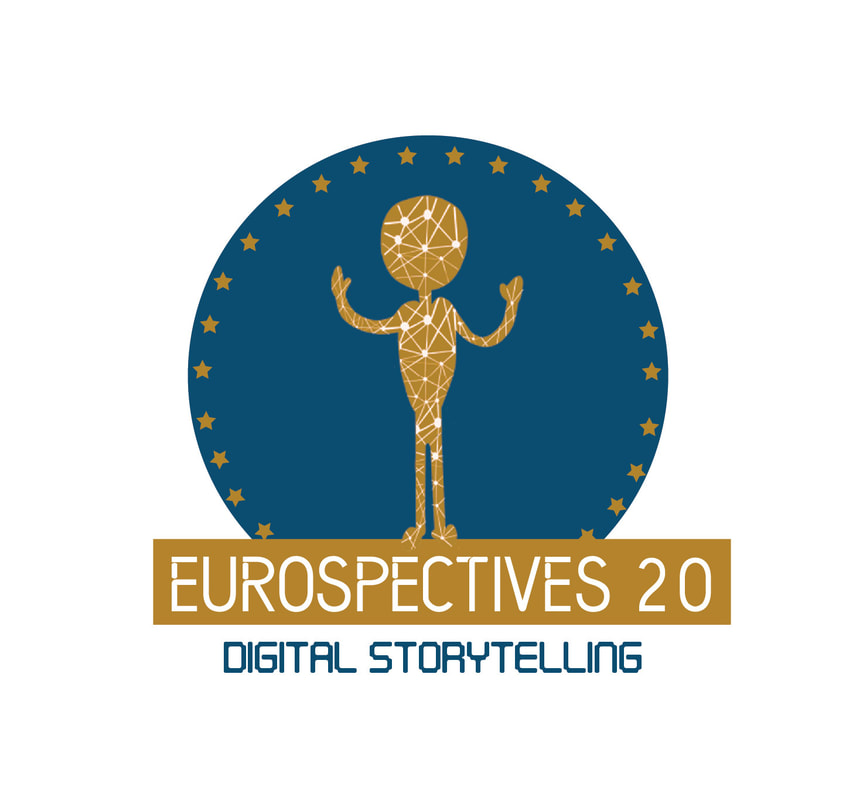EUROSPECTIVES 2.0, the follow up of the finalized strategic partnership ?We are all digital natives?, stands for training and encouraging European learners in telling their stories, their perspectives.
Digital Storytelling is a way to engage and empower learners and teachers. By telling and sharing stories in the digital era, they can intervene, interact and change with their everyday environment, by fostering their feeling of public ownership and citizenship.
“Digital storytelling,” combines the longstanding art of storytelling with the use of a variety of multimedia tools. This type of activity can generate interest, attention and motivation for “digital education?. The process capitalizes on the creative talents of learners who will develop their communication skills by learning to organize their ideas, ask questions, express opinions, and construct narratives.
Since the digital aspect of storytelling is including non-verbal communication and expression, it is an inclusive approach, which can be facilitated especially by disadvantaged learners such as refugee, handicapped, poorly educated and long-term unemployed. The approach enables learners to discover their creativity and to improve their position on the job market through their new skills.
EUROSPECTIVES 2.0 will identify smart practice methods and turn them into a state-of-the-art training modulecurriculum, integrating digital storytelling into lifelong learning experience. EUROSPECTIVES 2.0 will last 30 month long, the outcomes will be delivered through the following main activities:
1. Evaluation of 12 smart practices of using digital storytelling for educational purposes.
2. Development of the training module curriculum based on the smart practices.
3. Testing of the curriculum in different teaching environments provided by three training courses.
4. Dissemination of the results and outputs following the project dissemination matrix. The project?s web site and two multiplier events will be at the core of this activity.
The main results and outputs of the project will be:
1. An eBook on smart practices, with its summary translated in all project languages.
2. A sustainable web site serving as digital platform for storytellers, digital community reporting individuals, organizations and NGOs.
3. Intercultural and cross-border stories coming from people and communities dealing with intercultural questions in the EU ? will be uploaded on the website.
4. An eBook of the digital storytelling training curriculum and its summary in all project languages.
- Within EUROSPECTIVES 2.0 each partner will share its specific experiences and skills:
Crossing Borders – coordinator, active in youth and adult education. Sharing expertise in dissemination, and youth work, qualifying trainer and volunteers;
Comparative Research Network e.V. – active in adult education, sharing expertise in curriculum building, digital storytelling methods and evaluation systems;
Ellinogermaniki Agogi – active in?teaching teachers vocational, primary and secondary education. Sharing expertise in digital curriculum building, digital classrooms and dissemination; - People’s Voice Media – active in qualifying community reporter, sharing expertise in curriculum building, certification and qualification of trainer;
COSV Italy – active in training trainers and project manager, working with migrants. Sharing expertise in media methodology, dissemination and qualification in non-formal education;
CFR Vigo -is working on the digitalization of classrooms in primary and secondary education, by supporting teacher who want to initiate projects;
Agora Köln – is a provider of non-formal participatory education. The partner has experience in civic
education and has a deep knowledge on using storytelling and media literacy methods with various age groups.
EUROSPECTIVES 2.0 will play a direct effect on approximately 4000 people through the meetings, trainings, dissemination activities and the two multiplier events. The long term benefits of the project will be the integration of digital storytelling tool in teaching curriculum especially tailored for disadvantaged learners: persons with disabilities, coming from marginal groups and/or suffering from communication problems. Indirect long term impact will be the increase of digital literacy and active citizenship among people living in marginal situation.
